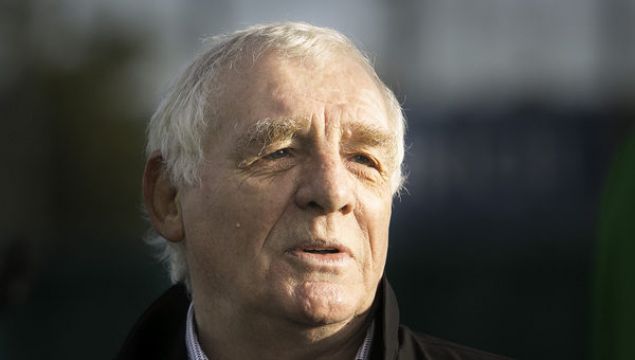A District Court judge informed the Attorney General in June 1993 that he did not wish to defend a judicial review case being taken against him by the former soccer player and journalist, Eamon Dunphy.
State papers show that Judge Timothy Crowley phoned the Attorney General’s office on June 21st, 1993, to state that he did not want to defend the proceedings if the case could be sent back to the Dublin District Court “to be dealt with.”
Mr Dunphy had taken a High Court challenge against the judge’s decision to issue a bench warrant for his arrest after he failed to show up in court on May 31st, 1993.
The broadcaster and soccer pundit, who lived in Castletownsend, Co Cork at the time, was accused of a number of road traffic offences including driving without road tax and insurance when he was stopped by gardaí while driving on Wattling Street, Dublin on May 31st, 1992.
Mr Dunphy’s solicitor, Patrick McGonagle, who did attend court on the day, had sought a short adjournment of the case on the basis that his client was “down the country on business.”
Files show the arresting officer, Garda Gerard Moloney, told the Chief State Solicitor’s Office, that he had no objection to Mr Dunphy being remanded on bail but that the judge had decided to issue a bench warrant.
Judge Crowley had previously stated to the Attorney General’s office that he was entitled to issue a warrant when a defendant who had been summoned failed to appear in court.
The judge pointed out that both he and the court registrar had checked that Mr Dunphy had been properly served with a summons.
An affidavit by the broadcaster showed he sought the adjournment in order to locate relevant documentation.
Mr Dunphy said he had also made several unsuccessful attempts to contact Garda Moloney to have the matter adjourned.
He claimed the judge had erred in law and acted in excess of his jurisdiction in ordering his arrest and asked the High Court to quash the order issuing the warrant for his arrest.
Despite Judge Crowley not wishing to defend the proceedings, the case went ahead and was ultimately decided by the Supreme Court.
It rejected Mr Dunphy’s appeal and upheld a High Court ruling that Judge Crowley had been entitled to issue the warrant, notwithstanding that his solicitor had been in court.







